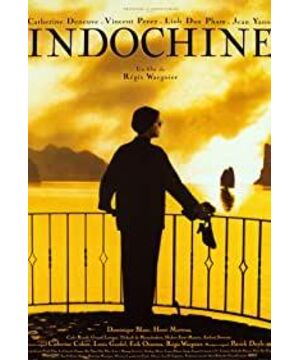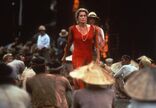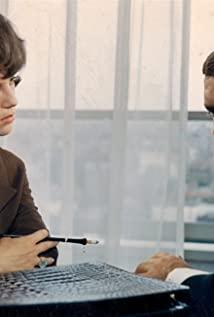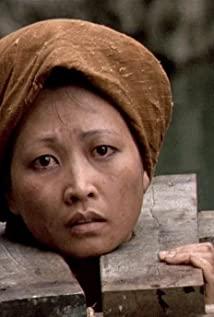The most extreme narrative discourse about the colonial era may be "Robinson's Wandering" and Sayyid's post-colonial theory. The former subconsciously chose Robinson’s perspective and Robinson’s language, while the latter followed up funny, taking the Friday’s perspective and speaking Robinson’s language. Said's theory is said to have become a popular discourse in the Chinese Academy of Sciences. To clarify this chaos, one can cite two popular classic films, "Out of Africa" and "Indochina".
The film "Go" selects the colonial era as the background, not so much to highlight the historical depth of the theme of love, but to match an exotic flavor. However, the scene where the heroine begged the colonial authorities for the rights of the local indigenous people, but inadvertently pushed the background to the foreground. At this moment, what is illuminated by love is not the anger and hatred caused by the opposition, but the compassion that is presented at the time of loss and helplessness. People can appreciate the nobility of equality of all beings from that kneeling humility. And this nobleness was quickly understood by a noble lady. This scene eclipses the ignorant arrogance and crude self-confidence in "Robinson's Drifting". Since civilization is physical, the conquest of civilization is somewhat savage as described in Guns, Germs, and Steel.
But this does not mean that Sayyid’s post-colonial theory therefore appears to be justified. For example, the picture shown in "Indochina" is absolutely impossible to use Sayyid's theory. Civilization and barbarism, Western and Eastern, Caucasians and yellow races, many of the concepts that self-righteous scholars talk about in the colonial era portrayed in the film all look very pale. A mother-daughter relationship established through adoption is not as deep and broad as blood ties but better than blood ties. The French boy who seemed to have emerged from Chateaubriand's novels staged an Eastern Tragedy of Carmen with the mother and daughter.
The same theme of love, the colonial era in "Indochina" is no longer just used as a background for embellishment, but has the meaning of tragedy itself. The roles of Robinson and Friday are shattered by more human factors such as love, education, humanity, struggling for survival, self-esteem and dignity, etc. in this film, and thus are completely eliminated. If the post-colonial Oriental theory is implanted in the aesthetic process of this movie, there is no value at all except for being funny. Because just as hate can exist in any era, love can also breed at any time under the background of different races and civilizations. The love of mother and daughter, the love of men and women, the love of friends, and the love of ethnic groups, like the flowers and plants of nature, are wild and wild, so they cannot be interpreted or talked about.
If one wants to find any motivation from the tragedies described in this film, then perhaps it can only be attributed to fate. It is destiny for a daughter to fall in love with a foreign boy. It is also a fate for a teenager who is in love with a mother to fall in love with a daughter. Because love goes to the road of no return, it is fate. destiny. The racial differences and the level of civilization all seem insignificant in the face of fate. A dignified officer became a fugitive from the desperate world in a blink of an eye. A well-educated wealthy girl suddenly became a heroine with blood on her sleeves.
In terms of historical depth and humanity, "Indochina" is far more shocking than "Out of Africa". Not to mention, the Carmenian tragedy was appealed to the poignant beauty and convoluted nature of Eastern women. When the Vietnamese girl shot the colonizer, she not only killed the French Robinson, but also ended her true self as a girl. From then on, apart from the desperate world of love, she could not continue to exist as a daughter, nor could she assume the responsibilities and obligations of a mother in the future. The natural link of being a woman to a mother is interrupted by her destiny.
The same interruption happened to the male protagonist. Because of love, his role was completely messed up. He became a French officer who rebelled against the French colonialists. At the same time, he was a revolutionary who made a living by acting. He couldn't figure out whether acting was a revolution or a revolution; let alone, it was a man. Husband and father who live in homeless exile. Such a situation is so absurd that it does not matter whether the final outcome is suicide or homicide. The important thing is that there is no choice but to die. Compared with the accident in "Out of Africa", the death of the hero in this film is obviously more embarrassing.
By the way, the same two outstanding female protagonists, Aunt Mei’s brilliant performance can be described with superb acting skills, and Deneuve, as the pivotal character of the various entangled narratives of the film, has a graceful demeanor with no ornaments, and has surpassed it. It only ends with the realm of talking about acting.
View more about Indochine reviews











